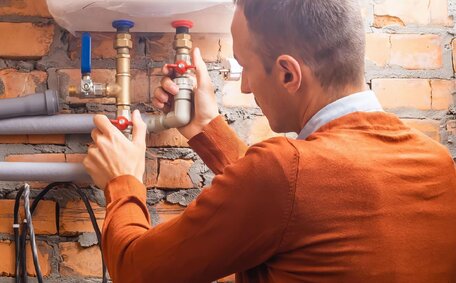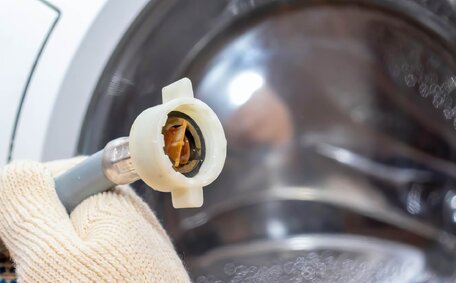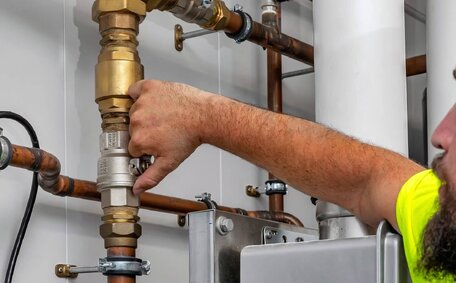Understanding Local Permit Requirements for Gas Line Installations
Before extending your gas line, you must secure the necessary local permits in Saint Marys, Sydney, to comply with regulations. The city often requires licenced professionals to carry out such projects, so attempting a DIY gas line install without permits risks violating codes.
Do I need a permit? is a common query, as Obtaining permits, which are mandatory for all gas line work, often raises questions about the timeframe involved. To obtain permits in Saint Marys for extending your gas line, the following steps are necessary:
- Research Saint Marys’ specific permit requirements and application procedures
- Submit the completed permit forms and any required documents such as plans
- Pay permit fees
- Schedule necessary inspections from the city
Ignoring the permit process not only violates regulations but also poses a serious safety risk; however, we can guide you through meeting compliance requirements for your gas line project. With proper permits, we can help ensure your gas line street project undergoes vital reviews, ensuring codes compliance and reducing risks. Adhering to Saint Marys’ permitting process guarantees that, when using certified experts, your water heater installations and complex gas tasks are handled proficiently.
Hiring a Professional and Licensed Plumber
Hiring a qualified and licensed plumber is essential when extending your gas lines. The first thing to remember is that attempting DIY gas line projects risks leaks, explosions, violations of codes, and legal repercussions since natural gas systems are extremely dangerous for amateurs.
Select experienced plumbers with specialized training in gas lines to guarantee the safety of your home and family. Certified experts understand protocols such as the proper pipe sizing, materials, venting, pressure regulation, leak detection, and we can help find the optimal safety procedures to secure your home. They also carry full licencing and insurance for such specialist work.
On the other hand, unqualified plumbers or handymen provide no assurance of safe gas installations, Due to their insufficient qualifications, skills, and experience in gas work, Such subpar work can do more harm than good, likely violating regulations and exposing your house to fires, health hazards, or even lawsuits in the event of injuries or damages.
Choose Saint Marys Plumbing for assured code-compliant installation and reliable quality when extending your gas line. Our fully licensed and insured specialists ensure safety and high-quality materials and workmanship when installing or extending gas infrastructure.
Selecting the Right Materials and Sizing for Gas Pipes
When installing gas line street, Using materials and pipes that align with local gas standards in Saint Marys is crucial for ensuring efficiency and safety. Australian standards require that service line pipes be made of copper, polyethylene (PE), or steel. Local regulations in Saint Marys require the use of joint compound or Teflon tape on fittings to secure airtight connections.
For residential natural gas line extensions in Saint Marys, copper and PE are the most common pipes used. PE pipes, which are bendable and corrosion-resistant, are perfect for domestic gas lines due to their flexibility for routing through your house.
Steel pipes have become an uncommon choice for indoor gas infrastructure due to the advantages of modern materials. Copper is likewise approved to connect your indoor and outdoor your natural gas piping efficiently.
The size or diameter of gas pipes affects gas flow volumes to appliances. The correct pipe sizes are determined using sizing charts that account for location, flow rates and heating efficiency.
Oversizing pipes can lead to unnecessary waste and expenditure without providing additional benefits.
- Gas type and pressure
- Pipe length
- Number of gas outlets
- Peak demand
Relying on qualified Saint Marys plumbers ensures they’ll tell your information we can help clarify regarding your gas pipes, encompassing all standards, codes, and sizing needs for your home. We can help choose quality materials suiting your requirements and design.
Safety First: Gas Shut-Off Procedures Before Work Begins
To ensure safety, we meticulously shut off the gas prior to starting any extension work. At Saint Marys Plumbing, our licenced technicians expertly turn gas off during this process.
Here is our step-by-step procedure for safely shutting off your gas:
- Firstly, determine the gas meter location, which is typically outside house on your Saint Marys property
- Note the control valve’s open/closed positions
- If there is a separate shutoff at appliances, turn those off first
- Then fully close the main gas shutoff valve located at your meter
- Go back inside and extinguish all pilot lights on gas appliances
- Keep the valve closed throughout the gas line extension job until we bring gas back safely and conduct safety checks and relight pilots
Our certified Saint Marys plumbers, who are well-versed in local gas procedures, handle this protocol, you avoid risks from incorrect shut-off sequencing. We also use industrial-grade leak detectors to double-check for residual gas before commencing work. Trust our gas safety expertise for your protection.
Conducting Leak Tests to Ensure Gas Line Integrity
After completing an install gas line installation or extension, it is crucial we perform thorough leak tests before restoring gas supply, to verify the system’s integrity and safety.
Saint Marys Plumbing employs state-of-the-art leak detection techniques to thoroughly inspect new gas installations:
- Pressure testing with industrial-grade manometers
- Electronic gas leak detectors to sniff out any leaks
- Leak detection spray/fluid to visually pinpoint escaping gas
- Controlled smoke tests to confirm ventilation compliance
We methodically check all joints, connections, and lengths of your existing gas line for utmost soundness. It is vital there’s no leaks before painting pipes to protect against corrosion and completing the professional installation.
Our thorough leak testing ensures the uncompromised safety and functionality of your new gas line extension or repair in Saint Marys.
Connecting New Appliances and Extending to Other Areas of the Home
Extending new natural gas infrastructure lets homeowners add gas ranges, upgrading outdated electric options to more efficient alternatives, even in previously unwired areas.
When connecting additional gas appliances or extending lines to new sections of your Saint Marys home, discover more about the key steps our professional plumbers follow:
- Confirming appliance types and locations based on your plans
- Sizing new pipe materials to suit increased demand
- Applying protective coatings to buried pipes if extending the line outdoors
- Fitting compatible regulator valves and safety features
- Checking for ventilation compliance in new areas
- Conducting extensive leak testing before restoring gas
- Providing certified gas appliance installation services if needed
Saint Marys Plumbing guarantees compliance with strict safety codes and standards for all new gas line extensions. We also handle all permitting and provide certified servicing to get new appliances running reliably.
Upgrading your home’s gas system to embrace natural gas heating and hot water is more cost-efficient compared to electricity. Extending infrastructure also increases home value. Trust our gas specialists for safe, seamless installations.
Estimating Costs of a Gas Line Extension Project
The cost of extending a gas line is subject to a variety of factors:
| Plumber fees | $80 to $150 per hour |
| Pipe materials (PE/copper) | $5 to $15 per metre |
| Excavation/trenching | $50 to $150 per metre |
| Permits | $100 to $500 |
| Appliances (optional) | $500 to $3,000+ |
As an example, the cost to install a gas line for a dryer could be approximately $225, depending on the unique details of the project. The total costs for your gas connection project will depend on the factors mentioned and more. With professional planners, we can project the costs of extending your own gas line upfront.






